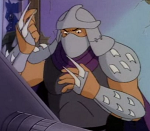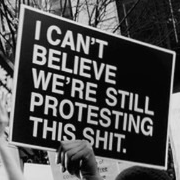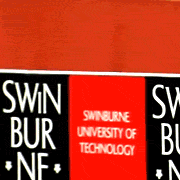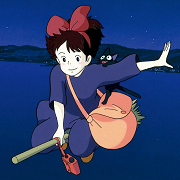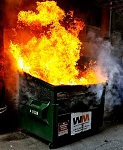|
Inescapable Duck posted:Clearly the politically correct solution is a genderless, ageless, raceless, unstoppable robot Santa to judge all of humanity. 
|
|
|
|

|
| # ? May 20, 2024 20:17 |
|
Funny progressive white men in collared shirts.
|
|
|
|
JBP posted:Funny progressive white men in collared shirts.
|
|
|
|
JBP posted:Funny progressive white men in collared shirts. now lets not say things we can't take back
|
|
|
|
Happy loving solstice, douchenozzles. Hey, if I go to the shops and buy a set of streak knives, is it legally possible for me to take them home?
|
|
|
|
This photo, and the conservative tantrums it caused, is amazing.
|
|
|
|
CrazyTolradi posted:"Stealing our rightful votes!" Whose votes? They look like they'd represent me more than a fat former union bloke or old church goer.
|
|
|
|

|
|
|
|
A top notch article from the Saturday Paper today https://www.thesaturdaypaper.com.au/news/politics/2017/12/23/its-all-john-howards-fault/15139476005689 quote:A decade after the fall of the Howard government, Australia remains unable to escape or undo the insular and unfair policies it enacted. By Mike Seccombe.
|
|
|
|
cohsae posted:A top notch article from the Saturday Paper today How I loathe it when people parrot him being the best PM we've had. Great article.
|
|
|
|
MikeJF posted:Happy loving solstice, douchenozzles. Your reason for carrying is you are transporting them to where they are to be used. Youre still technically carrying a weapon though. Its the same situation with transporting firearms that have just been purchaced being a legal grey area.
|
|
|
|
quote:A full bench of the Federal Court has thrown out an appeal by online video game retailer Valve Corporation against a ruling that it engaged in misleading or deceptive conduct and made false or misleading representations about consumer guarantees. Half Life 3 confirmed?
|
|
|
|
cohsae posted:A top notch article from the Saturday Paper today Excellent work. Required reading for all you millenials. This is what you have to undo.
|
|
|
|
Christmas present shopping is the worst, but it's interesting that at both shopping centres I have been to today it was really easy to get a park. Definitely would believe that numbers are down.
|
|
|
|
Senor Tron posted:Christmas present shopping is the worst, but it's interesting that at both shopping centres I have been to today it was really easy to get a park. Definitely would believe that numbers are down. This is not the experience I’ve been having.
|
|
|
Senor Tron posted:Christmas present shopping is the worst, but it's interesting that at both shopping centres I have been to today it was really easy to get a park. Definitely would believe that numbers are down. Crazy was saying earlier today that the CBD was practically dead in Melbourne
|
|
|
|
|
 Emporium. Last Friday night. 6:30 pm. I'd say employees outnumbered punters 3-4 to 1, except for maybe Uniqlo which had actual human beings buying things. We're going into a recession. hiddenmovement fucked around with this message at 05:00 on Dec 23, 2017 |
|
|
|
That and/or shipping fees look like less of a rip-off when they're also wrestle-with-Christmas-traffics-so-I-don't-have-to fees.
|
|
|
|
hiddenmovement posted:
Yeah but Emporium is garbage.
|
|
|
|
hiddenmovement posted:
They shifted boxing day sales to the lead up into Christmas just so that they can make some ground back on online distributors.
|
|
|
|
hiddenmovement posted:
Economists: is this a leading or lagging indicator?
|
|
|
|
tithin posted:Crazy was saying earlier today that the CBD was practically dead in Melbourne This makes why loving Sunbury of all places was packed to the brim yesterday make sense.
|
|
|
|
LIVE AMMO ROLEPLAY posted:This is not the experience I’ve been having. This is Westfield Marion (biggest mall in SA). I mean it's busy, but every year is usually take 20 minutes to find a park busy, whereas today there were quite a few scattered around.
|
|
|
|
Perth city has been packed for the last week, and of the two randoms shopping centres I went to, one has been empty and one has been packed. Its very hit or miss
|
|
|
|
|
NPR Journalizard posted:Perth city has been packed for the last week, and of the two randoms shopping centres I went to, one has been empty and one has been packed. Gotta get the shopping done before the shops close at midday or whatever backwards thing Perth shops still do.
|
|
|
You Am I posted:Gotta get the shopping done before the shops close at midday or whatever backwards thing Perth shops still do. Except they dont?
|
|
|
|
|
Tuggerah is it's usual insanity, and West Gosford was nuts this morning. Erina Fair has been pretty poo poo too. So all normal on the Central Coast of NSW.
|
|
|
|
cohsae posted:A top notch article from the Saturday Paper today Thanks for this, it's a good read. I'll offer two old ones if anyone hasn't read them already: We really must talk about the Howard and Costello economic disaster Joe Hockey and the myth of Coalition economic management The problems are pervasive but not fundamentally difficult to fix, but the Overton Window is entirely controlled by malevolent oligarchs and therefore every viable solution is effectively banned from discussion. On top of that there's a ratchet effect when government alternates between a centrist party and a kleptocratic party - one keeps things the same and the other makes them worse. It's a pattern that's been repeating the world over for a while now. Take those statistics that came out lately on the tax paid by companies earning over $100m. I dropped those numbers into a spreadsheet to estimate the effective tax rate on big business in Australia: 2043 companies earning a total of $1.8 trillion paid a total of $38 billion in tax, for an effective tax rate of 2.11%. 732 companies with a total income of $506 billion paid no income tax whatsoever. Only 38 of those 2043 paid more than 10%; of those who paid anything, most (1139) paid less than 5%. Only four paid over 20%. The big four banks pay 7% tax between them. Wesfarmers pays 1.46% tax on its $63.4bn income, and Woolworths pays 1% on $49.4bn. Part of the reason it's so low is that only 9.5% of that $1.8tn is considered taxable income. Woolies, for instance, is technically paying 26% income tax - except only 3.7% of their income is taxable in the first place. Those 732 companies with no taxable income had an average income of $700 million. That list includes News Corp, Foxtel, Adani, Exxon, Ford, General Motors, EnergyAustralia, BNP Paribas and Virgin Australia. The highest earning company to pay no tax is Glencore Investment at $18.3 billion, closely folled by Viva Energy at $16.8bn and Qantas at $15.8bn. If that 2.1% was increased to 4%, the deficit would disappear immediately, with nearly a billion left over. Raising it to a backbreaking 10% would increase the federal budget by 40%. What could Australia do with a $147 billion surplus? That'd buy a lot of tortured refugees, for sure. Note: that list doesn't even consider negative taxes (subsidies, rebates, etc). Reminder that Murdoch's News Corp got a billion dollar tax rebate just after Abbott got in, even though they don't pay taxes any more. They're sure as gently caress not the only ones.
|
|
|
|
https://twitter.com/CUhlmann/status/943975494722002944
|
|
|
|
Chadstone felt very busy, but there was plenty of parking too. We were there around midday, though, it'll probably speed up tonight and tomorrow.
|
|
|
|
https://twitter.com/smurray38/status/944365530844053504
|
|
|
|
NPR Journalizard posted:Except they dont? if you aren't out of the city and home by 2pm, Ol' Bertie will rise up and sacrifice you to the Elder Gods or some poo poo I don't know
|
|
|
|
GoldStandardConure posted:if you aren't out of the city and home by 2pm, Ol' Bertie will rise up and sacrifice you to the Elder Gods or some poo poo I don't know 2pm is ol berties me time.
|
|
|
|
Bertie Beetle?
|
|
|
|
I mean in fairness, Perth has only had non-fogie trading hours for about 3 years, and even then most specialty stores close at 5-6pm every day but Thursday in the suburbs, maybe Friday in the CBD.
|
|
|
|
The state government relaxed the laws so when people complain that the shops aren’t open they at least can’t blame the government for stopping them.
|
|
|
|
tithin posted:Crazy was saying earlier today that the CBD was practically dead in Melbourne Places like Bourke St, Swanston St and QV had the usual size crowds but nothing at all like last year, there's certainly a very subdued feeling in the city.
|
|
|
|
Fuckface the Hedgehog posted:Yeah but Emporium is garbage.
|
|
|
|
Inescapable Duck posted:Bertie Beetle? https://www.youtube.com/watch?v=PDhmdbVk0l4
|
|
|
|

|
| # ? May 20, 2024 20:17 |
|
MiniSune posted:Tuggerah is it's usual insanity, and West Gosford was nuts this morning. Erina Fair has been pretty poo poo too. Tuggerah is always poo poo. Regards, someone who worked there for 13 years.
|
|
|





